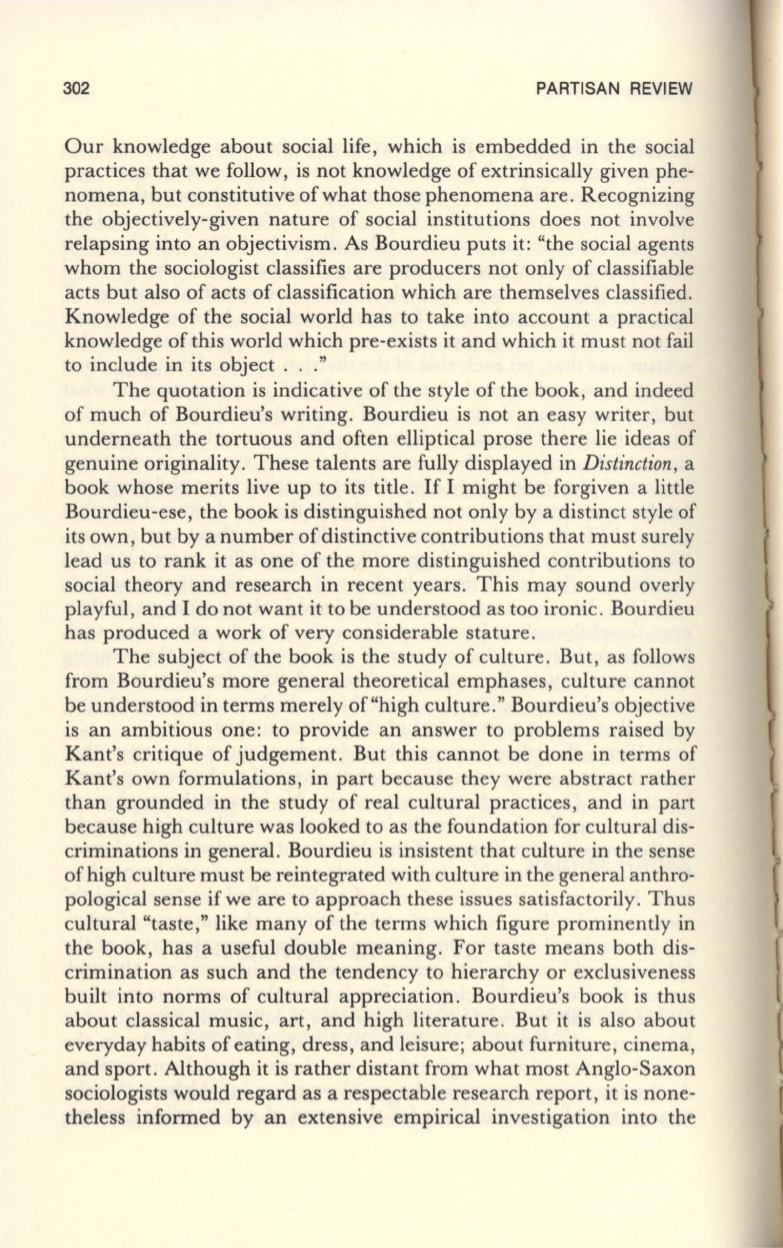
302
PARTISAN REVIEW
Our knowledge about social life, which is embedded in the social
practices that we follow, is not knowledge of extrinsically given phe–
nomena, but constitutive of what those phenomena are. Recognizing
the objectively-given nature of social institutions does not involve
relapsing into an objectivism. As Bourdieu puts it: "the social agents
whom the sociologist classifies are producers not only of classifiable
acts but also of acts of classification which are themselves classified.
Knowledge of the social world has to take into account a practical
knowledge of this world which pre-exists it and which it must not fail
to include in its object .. ."
The quotation is indicative of the style of the book , and indeed
of much of Bourdieu's writing. Bourdieu is not an easy writer, but
underneath the tortuous and often elliptical prose there lie ideas of
genuine originality. These talents are fully displayed in
Distinction ,
a
book whose merits live up to its title.
If
I might be forgiven a little
Bourdieu-ese, the book is distinguished not only by a distinct style of
its own, but by a number of distinctive contributions that must surely
lead us to rank it as one of the more distinguished contributions to
social theory and research in recent years . This may sound overly
playful, and I do not want it to be understood as too ironic . Bourdieu
has produced a work of very considerable stature.
The subject of the book is the study of culture. But, as follows
from Bourdieu's more general theoretical emphases , culture cannot
be understood in terms merely of "high culture." Bourdieu's objective
is an ambitious one: to provide an answer to problems raised by
Kant's critique of judgement. But this cannot be done in terms of
Kant's own formulations, in part because they were abstract rather
than grounded in the study of real cultural practices , and in part
because high culture was looked to as the foundation for cultural dis–
criminations in general . Bourdieu is insistent that culture in the sense
of high culture must be reintegrated with culture in the general anthro–
pological sense if we are to approach these issues satisfactorily. Thus
cultural "taste," like many of the terms which figure prominently in
the book, has a useful double meaning. For taste means both dis–
crimination as such and the tendency to hierarchy or exclusiveness
built into norms of cultural appreciation. Bourdieu's book is thus
about classical music, art, and high literature . But it is also about
everyday habits of eating, dress, and leisure; about furniture, cinema,
and sport. Although it is rather distant from what most Anglo-Saxon
sociologists would regard as a respectable research report , it is none-
theless informed by an extensive empirical investigation into the


